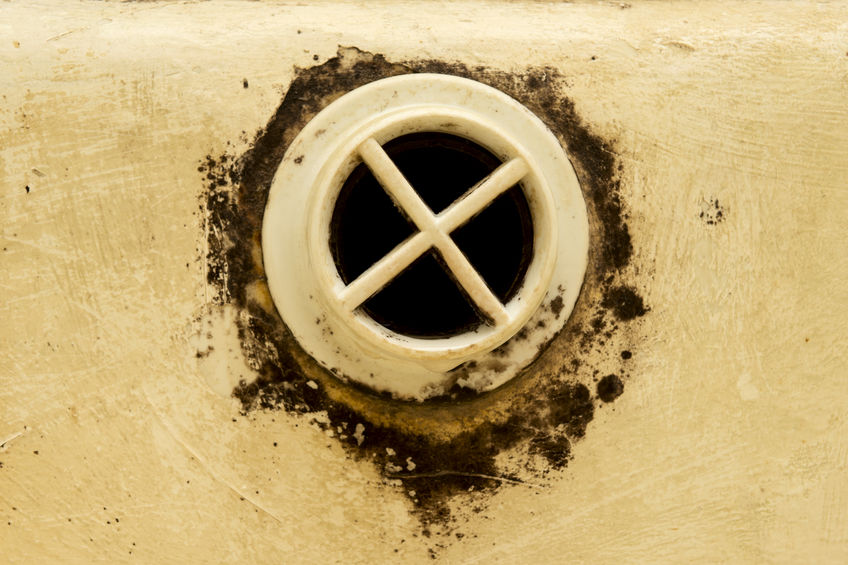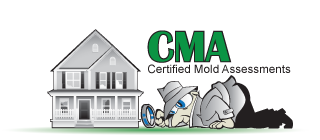 Mold spores are virtually everywhere, but they only survive when conditions are optimal. Mold is likely to grow in your sink drain because there is enough moisture and humidity, which are favorable conditions. Mold in the sink drain can be very hard to identify but can be recognized by the color, smell, and even allergic reactions when one is using the sink. This article will talk about five major signs that you can look for when checking for mold growing in your sink drain.
Mold spores are virtually everywhere, but they only survive when conditions are optimal. Mold is likely to grow in your sink drain because there is enough moisture and humidity, which are favorable conditions. Mold in the sink drain can be very hard to identify but can be recognized by the color, smell, and even allergic reactions when one is using the sink. This article will talk about five major signs that you can look for when checking for mold growing in your sink drain.
1. Leaky Sink Drain
Causes of mold are very clear. Since mold is a living organism, it requires moisture to exist. If your sink drain is leaking, it offers a superb environment for mold growth. The uncontrolled moisture from your leaking sink drain is one major contributing factor of mold growing indoors. In addition to this, a sink drain is a high-humidity area, due to the nature of its use. Due to this, you should not be surprised to see mold growing in this area. Nevertheless, as long as you use your sink on a regular basis, you can be able to discover the presence of mold quite easily. Thus, if you happen to notice a leaky sink drain, you should consider having the problem handled as soon as possible to minimize the risk of extra growth.
2. Musty Smell
Another thing that will help you identify the presence of mold in your sink drain is a persistent damp smell coming from the sink. You should be more concerned if the musty smell comes after you have cleaned your sink thoroughly. This is because such a smell could signify accumulated moisture, a hidden leak, or existing mold. Mold spores happen to decompose dead materials, leading up to an unpleasant stale smell. If you notice such a smell when using your sink, be sure to have it checked for mold to avoid any future issues.
3. Mold Exposure Symptoms
Mold is known to have negative health effects to individuals exposed to it. Some people are very sensitive to mold exposure and might show the following signs when using the sink – sneezing, a runny nose, itchy eyes, coughing, chronic fatigue, headaches, depression, dizziness, and irritability. Mold spores are especially very harmful to individuals that suffer from asthma and other respiratory diseases, or those that have a weak immune system. It might be difficult for you to be sure that these symptoms are mold related. However, if there is no other reason for a member of your family to experience these symptoms, especially when using the sink, you might want to look for mold in your sink drain.
4. Damaged Drain
If your sink drain looks discolored, has a muddy appearance, or the whole area feels damp and slimy, it could indicate mold growth. If the walls surrounding the sink drain have signs of crumbling plaster, cracked tiles, or blistering paint, you could be having a mold problem. If you have wallpaper next to your sink drain, unusual peeling or abnormalities like cracking and bubbling could signal the presence of mold. Hence, you should consider keeping a good eye on the areas around your drain that either feel damp or look warped.
5. Visible Mold
An obvious sign to look for is visible mold. Although mold spores are invisible, they could be seen with the naked eye if the problem is severe. If you happen to see a greenish-black growth around your sink drain, it could signal the presence of severe mold. There are numerous home test kits in the market, which can assist you to know the kind of mold problem you are dealing with and its dangers.
Mold spores are usually everywhere, something that makes it hard for you to eliminate them in your house for good. Mold mostly thrives in conditions with the presence of moisture. One of these places is your sink drain. The last thing that you would like to have is a sink drain full of mold. That is why we have provided you with five major signs, which will tell whether you have mold in your sink. Implementing this information is essential, as it will enable you take the right steps to eliminate mold in your sink drain. This is the only way that you will be in a position to achieve a health and clean environment for you and your family. If you need help removing mold in your sink, you should consider reaching out to professionals for help.
